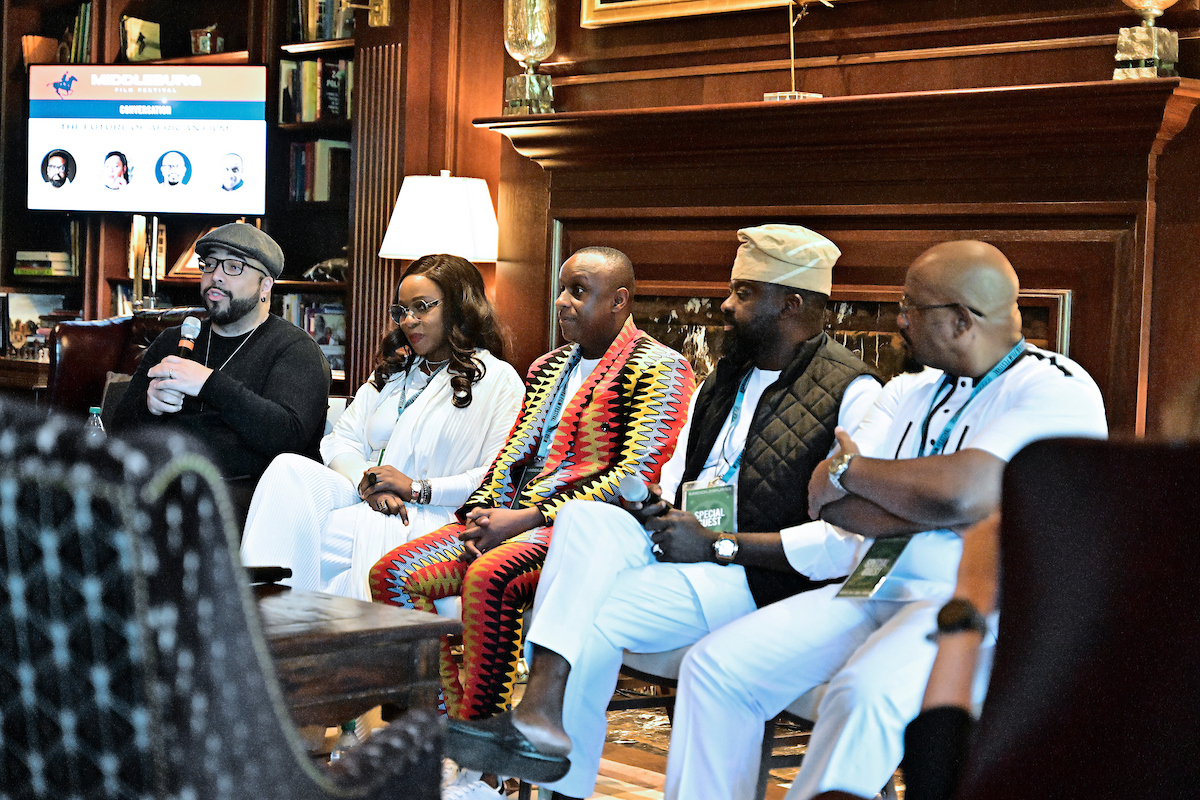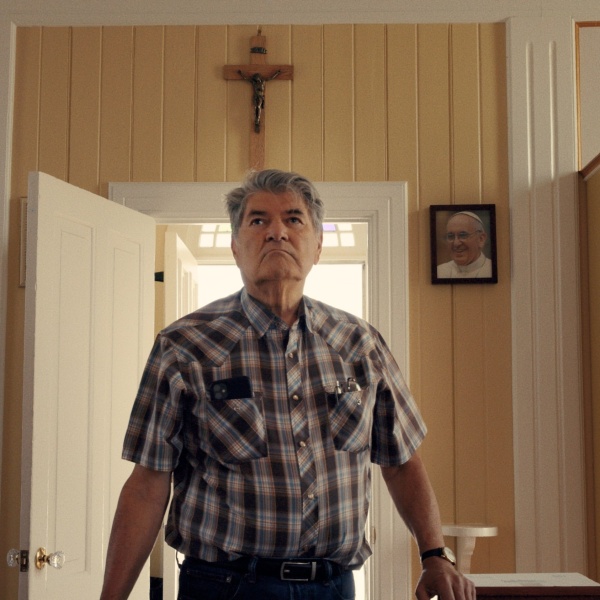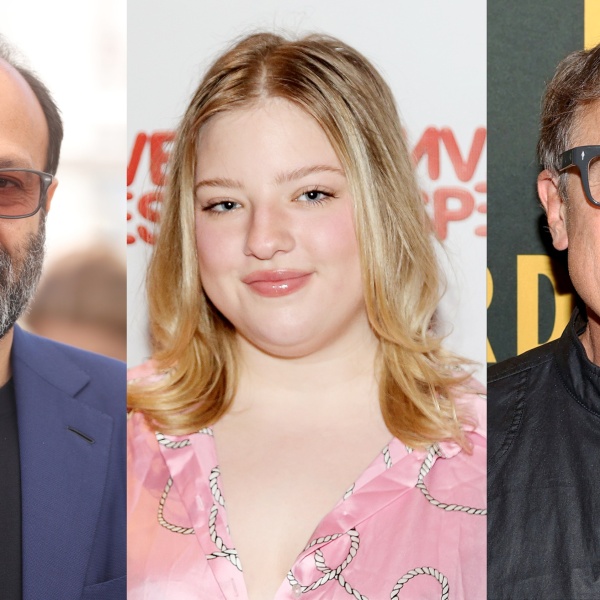The Middleburg Film Festival is tucked in the Blue Ridge Mountains above Washington, D.C., but that didn’t stop it from engaging in a little diplomacy of its own. A delegation of filmmakers from Nigeria and Kenya, Acting Under Secretary of State for Public Diplomacy Lee Satterfield, and the department’s director of film, TV and digital programs, Catherine Collins, attended the festival.
It’s always important to have the old Kurt Vonnegut quote in mind and not mistake artistic expression for political capital, but the hope was that by having the delegation at Middleburg, it would offer greater visibility for the filmmakers and foster connections between the resources and innovation of Hollywood and the exciting emerging voices coming out of Africa.
Filmmakers Kunle Afolayan (“Phone Swap”), Kenneth Ambani (“A Better Life”), Philip Karanja (“Click Click Bang”), and Bolanle Austen Peters (“House of Ga’a”) spoke about the challenges they’ve overcome and still face, as well as the need for film history courses to not gloss over African films — “You probably will see only Ousmane Sembene [in syllabi] and the world has changed,” Afolayan said — to achieve the same level of global audience and attention as the South Korean film industry has over the last decade.
This is something the filmmakers said has to happen by taking advantage of the ubiquity of internet content platforms. “I think around 2015, the first screen human beings interact with became their phones. We wake up, we’re looking at the phone; when we’re watching a movie, we’re still on our phones,” Karanja said.
Karanja spoke about the increasingly niche, community-oriented opportunities for artists to build their own following they can then leverage into resources and corporate partnerships. “The next billionaires are going to be content creators. I think MrBeast is already on the way there. So we’re in a place where it’s about individual content creation. The heavy machinery that used to be Hollywood, unfortunately, might not survive in the world that we’re living in because, I mean, it’s super expensive,” Karanja said.
All four filmmakers identified funding and distribution as core challenges for their respective industries, with financial models that are almost always loan-based or quasi crowdfunding-based, the opposite of the advice that American film schools (and “Megalopolis” detractors) are likely to give about never putting one’s own money into a film project. Karanja said that Kenya is shifting from doing things the Hollywood way to thinking through how to make projects cheaper, faster, and with a supporter community in mind.
“[We have to] use that community to be our first clients. And so what we did with our production company is we started narrating stories on YouTube; we created a cult, obsessive following, and then we asked the audience to vote for which story they’d want us to convert into film — which now for me, as a CEO, I already have a return on investment before I even start filming because the market is there,” Karanja said. “So we shot our first film in 10 days, and then we built our own distribution platform, our own website, and then we [can] sell directly [to our fans].”
It’s a great strategy if you can successively ride the wave of platform algorithms to create that following, but Peters pointed out that a lot of that growth can become possible when the existing streaming platforms themselves invest in global film communities.
The investment in Nigerian filmmakers from Netflix and Prime Video has “changed the landscape, if we want to be honest. All of a sudden, Nigerian content was being seen globally, and I think for us, that is the most important message: That people can see our stories,” Peters said.
Usually, awards, particularly the Foreign Language Film Academy Award, are how films from across the globe surface in America. But Peters said that the streamers were providing a boost to African cinema, which usually has not surfaced the way European and Asian cinema has.
“I’m here [at this festival] watching films from all over the world, but I’m not represented. If we want to achieve a world where there’s parity, where there’s understanding of human character, human dignity, you have to know who I am. And if you don’t know who I am, how do we begin to relate?” Peters said.
The film industries in Kenya and Nigeria are trying to tackle the discoverability problem, while also trying to build up a future that preserves its past. Afolayan is the son of Nigerian film pioneer Adeyemi Afolayan and has personally put money into restoring his father’s movies. “At the moment, if you search for the films that pioneering African filmmakers have done, you won’t find them anywhere,” Afolayan said.
It’s as important to be able to find old films as it is to find the talent that will make the new ones. Ambani, who is a public official in Mombasa in addition to an actor and director, is trying to educate the Kenyan government on the potential of growing the film industry in the country.
“Politicians will always focus on the infrastructure. They build roads so that someone can see, ‘Oh, that’s a good politician. He built a road,’ but they do not realize… When you have a set, the women who come to sell food there will grow [their economic power]. There’s young men and women who come in as extras, they get something out of the set. The people who come to construct those sets, the makeup artists and everybody else: We’re actually growing the economy. This is an area that the national government of Kenya was not aware of,” Ambani said.
Film sets, film schools, film production companies: They’re all things that the Nigerian and Kenyan filmmakers have begun to build out for themselves, even as they look to every example on the internet for how to realize the ambitions they have for their stories in the more flexible age of streaming.
Those ambitions were maybe put best, if somewhat cheekily, by Peters. The goal is a world where, “When you guys watch ‘Crazy Rich Asians,’ you can also watch ‘Crazy Rich Nigerians,’” Peters said.





